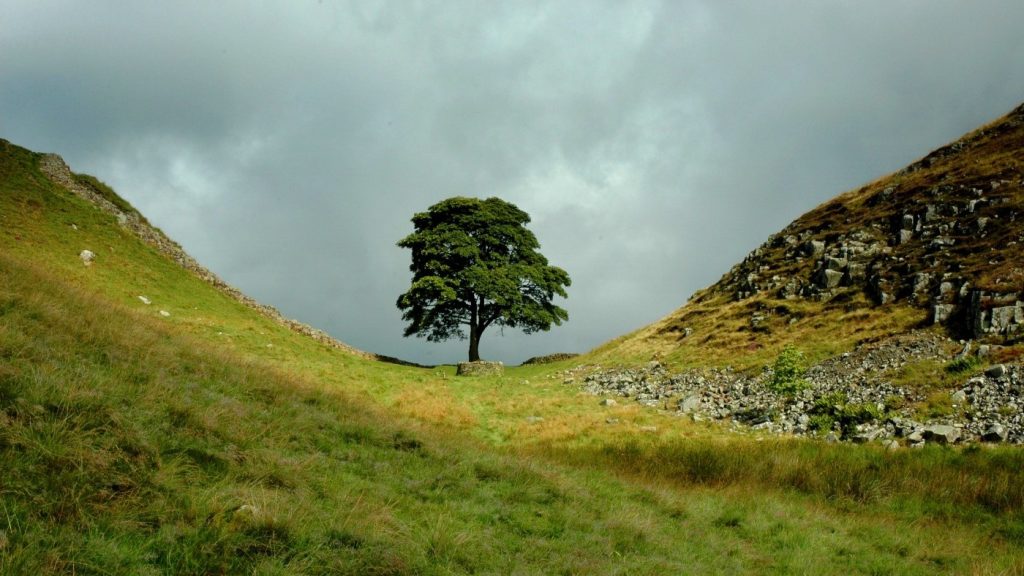The loss of the beloved Sycamore Gap tree devastated a nation. Now, two men are on trial.
Others are reading now
Two men accused of cutting down the Sycamore Gap tree, a much-loved landmark in northern England, are set to stand trial this week at Newcastle Crown Court.
Daniel Graham, 39, and Adam Carruthers, 32, have pleaded not guilty to two charges of criminal damage relating to the felling of the iconic tree and damage to Hadrian’s Wall. Prosecutors estimate the tree’s value at more than £620,000 (€729,000) and assessed the wall’s damage at around £1,100 (€1,300).
According to Euronews, the trial is expected to last two weeks.
It had initially been scheduled for December but was postponed due to Graham’s illness. Prosecutors have not publicly disclosed what evidence they will present or the suspects’ alleged motive.
Also read
The Sycamore Gap Tree
The Sycamore Gap tree, located along Hadrian’s Wall—a Roman-era fortification built in A.D. 122—was not Britain’s largest or oldest tree but was highly valued for its striking placement between two hills.
It became widely known after appearing in the 1991 film “Robin Hood: Prince of Thieves” and attracted tourists, photographers, and visitors from across the country.
Locals and visitors alike considered the tree a landmark, with many choosing it as the site for personal milestones such as wedding proposals, memorials, and family gatherings.
Catherine Cape, who runs a nearby guest cabin, said the tree had special meaning for her family and the local community.
“The tree’s part of our Northumbrian identity. It’s something that everybody grows up knowing about,” she said.
Following the felling in 2023, the tree’s remains were removed by crane and placed into storage at a National Trust property. Part of the trunk was later displayed at a visitor center, and saplings grown from its seeds are being distributed for planting around the UK.
Despite the loss, there are signs the tree might regrow. Dozens of shoots have emerged from the remaining stump.
Legal experts say a prison sentence for illegally cutting down a tree would be unusual in the UK, but the high profile of the case and the national outcry could influence the outcome.
Attorney Sarah Dodd, who specializes in tree law, said:
That’s on the table because of the gravity of the situation—value and shock of the nation.
The incident has sparked widespread public interest, with many seeing the trial as a rare and symbolic moment for environmental and cultural protection in the UK.

